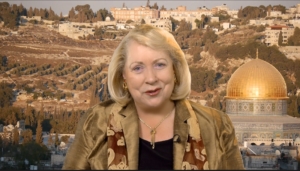 By Christine Darg, Jerusalem Channel
By Christine Darg, Jerusalem Channel
We are presently in the window of hope that the Jewish people refer to as the Season of T’shuvah, meaning the season of repentance. Let us pray for ourselves and for our nations. God does not want us to return to normal. He wants us to return to him!
While the Bible says NOW is the day of salvation and every day should be potentially a day of repentance, nevertheless on the Hebraic calendar there is also a season of reflection that is very helpful to believers, a season of repentance leading up to Yom Kippur, the solemn Day of Atonement. And what is that day all about? Let’s see what the Hebrew scriptures tell us in Leviticus 16: 29-31:
“On the tenth day of the seventh month, you shall humble yourselves and not do any work—whether the native or the foreigner who resides among you— because on this day atonement will be made for you to cleanse you, and you will be clean from all your sins before the LORD. It is to be a Sabbath of complete rest for you, that you may humble yourselves; it is a permanent statute.”
During this time leading up to the Day of Atonement, the Jewish people deliberately seek to repair relationships, to repent and ask forgiveness from the Lord and from family and neighbours. The rabbis teach that it’s not enough to say “sorry” but there should be sincere regret, and whenever possible, restitution made for a wrong committed.
Naming the sin causes us to face reality and hopefully not to do it again. Rather than simply saying, “I’m sorry,” it’s better to say, “Please forgive me for lying to you” or “forgive me for saying hurtful words,” and so forth. This is because real change is desired, not just always having to ask for forgiveness for old bad habits.
To repent literally means to return to God and to run away from sins. On the Day of Atonement, the Jewish people recite a prayer to confess their sins, and it’s a collective list, corporate prayer, acknowledging that we are all sinners. The Jewish people believe that this type of prayer will cause God to “seal” the Book of Life and that they will then be able to now start a new chapter, but in actuality the Bible teaches that a blood sacrifice is required to atone for sins. That is why Christians believe that the Blood of Jesus cleanses us from all unrighteousness and that if we confess our sin he is faithful and just to forgive us and to cleanse us from all unrighteousness. Here are some of the confessions that are made on Yom Kippur, asking forgiveness—
For sin which we have committed before God under duress
For sin which we have committed before God without thought
For sin we have committed before God by the meditations of the heart
For sin which we have committed before God with malice
and hard-heartedly
For sin which we have committed through speech
….with the evil inclination
…. intentionally or unintentionally
…. with falseness and with deceit
…. through defamation
by our verbal confessions
…secretly
or…. by a haughty demeanor
.. by running to do evil
… by ungenerosity
… in business dealings, and so forth. The prayer continues,
“For all these, God of pardon, pardon us, forgive us, atone for us.” I’m not sharing the complete list but the list should bring to mind the fact that sins can accumulate and pile up. Such praying helps us to be reminded of something we’re too casual about, the holiness of God. While He is perfect, we are far from perfect—and I’m going to make a statement that I don’t want you to take as political; it’s just an observation—President Trump is criticized endlessly especially by the media because of all of his imperfections and his opponents are also continually criticized, yet which one of us is perfect? Which one of us is free to cast the first proverbial stone? In our imperfections we are well advised by the Word of God not to be judgmental of the imperfections of others. Still… it’s such a temptation to be critical and judgmental. The old saying is true that when we point the finger, four are pointing back at ourselves. The Bible informs us that God uses our own measure of judgment against us, so it is certainly wise to keep our mouths shut when we want to say something or write something mean-spirited on the social media. Although it is tempting, let others do it. Let’s post truth; we are in this life to feed the sheep, not the goats.
Think with me for a moment how profound it must be that God brings himself to forgive us sinners —because our forgiveness had to be purchased by his very own Son at the Cross. The price was far from cheap. The price was the life’s blood of his only begotten Son. Many of the people in the world today are unchurched, biblically illiterate and they will plead ignorance to God’s moral authority – but they will be without excuse.
I describe myself as a Judeo-Christian because of the Hebraic foundation of my faith. It’s so important to understand the foundations God laid in the Hebrew Bible, for example, and to study the festivals of the Lord, the festivals that he ordained.
Derek Prince of blessed memory, one of my many mentors along the way, often spoke and wrote about how we believers are indebted to the Jewish people. Yet many “believers” get resentful when they hear that. It just astounds me when I see and hear people claiming to be believers and yet they ask in foolish manner why we have to be indebted to the Jewish people. They say we should only be indebted to the Saviour, but they don’t seem to realize that we owe the Jewish people a tremendous debt that cannot be calculated for having guarded and preserved the holy scriptures so diligently and passing them down to us and giving us the Saviour and all the foundations of the faith.
How can we understand Christianity if we are not familiar with the Hebrew Scriptures? For example, it’s vital to know that in the Bible, the four Spring Feasts of Passover, Unleavened Bread, First Fruits and Shavuot ( or Pentecost) all represent the first coming of Jesus, and all four of these festivals were fulfilled in the Lord’s first coming, his first mission on earth as Redeemer. He was the Passover Lamb, his body was the pierced and stripped unleavened bread broken for us, he was the first fruits raised from the dead and at the Festival of Weeks, called Shavuot or Pentecost, he sent us his Holy Spirit.
In all there are seven Levitical feasts—the four I just mentioned occur in the spring and then there are three more in the fall. The three biblical Fall Festivals that we are presently headed into are the Jewish New Year, Rosh HaShanah (but known in the Bible as the Feast of Trumpets), followed by Yom Kippur (the Day of Atonement), and finally the Feast of Tabernacles called Sukkot in Hebrew—these three all foreshadow the Lord’s second mission, the second coming of Jesus to restore the kingdom to Israel and to rule the world from the throne of his ancestor David for a thousand years, known as the Millennium. The intervening months between the Spring and Fall festivals are the time we’re presently living in now, representing the church age; we’re living in the time period between the Lord’s two comings. But at some point the church age will be finished and the Lord will return and restore the kingdom to Israel. Only the Father knows for sure when Jesus will come for the second time. But like a bride in waiting, we are definitely supposed to be preparing for His second coming and not just living from day to day without any thought of his coming. Heaven forbid!
So we’re presently in a 40-day season of reflection which begins on the first day of the Hebrew month of Elul, and this year the Hebrew month of Elul began in the third week of August; the 40 days leading to Yom Kippur on September 10 this year. According to a Jewish parable, during the month of Elul the king comes out into the field and talks to the ordinary people and is accessible to everybody. This “preaches” on many levels. King Messiah, while seated presently at the right hand of the Father, is also present 24/7 by his Holy Spirit in the world’s Harvest Fields, and he sends his laborers into the Harvest. He informs us that the labourers are few and that we should pray to the Lord of the Harvest to send forth more workers. Are you in the field with the King?
The word “Elul” is similar to the root of the verb “search” in Aramaic, and therefore searching our hearts is part of repentance. Because Elul is seen as a time to soul search and draw close to God, it’s customary to blow the shofar every morning (except on Shabbat) from the first day of the month until the day before the Feast of Trumpets. The blasts are meant to awaken soul-searching in preparation for the High Holy Days. This brings 1Thessalonians 4: 16 to mind—that soon we will hear the blast of the trump of God at the soon-appearing of Jesus in the clouds.
It’s also customary in Jewish circles to recite one of my favourite psalms, Psalm 27, A Psalm of David, every day during the month of Elul.
Why this psalm? According to the sages, the High Holidays are alluded to: for example Yom Kippur in the first verse, “the Lord is my light and my salvation.” For on Yom Kippur the Jewish people believe God saves repentant souls from prosecuting angels and inscribes their names in the Book of Life for a good, sweet and healthy new year. A Christian believes that Jesus, Yeshua, is our salvation when we repent of our sins, and when we receive the Atonement he wrought for us, he inscribes our names permanently in the Lamb’s Book of Life. Sukkot, the Feast of Tabernacles, is alluded to in verse 5 of Psalm 27, “for He shelters me in His Sukkah (his Tabernacle).” This is the same protective understanding that we learn about God from Psalm 91.
For 40 days the Jewish people blow the shofar (the ram’s horn) and recite a prayer that goes like this: “Awake, you who are sleeping, wake up and ponder your actions and deeds; remember your Creator and go to Him for forgiveness. Don’t be like those who waste years in seeking after vain things that can neither profit nor deliver. Look well to your souls and let every one forsake his evil ways and thoughts, and return unto the Lord, so that He may have mercy on you.”
The shofar under the inspiration of the Holy Spirit can be used as an instrument of spiritual warfare, although it’s primarily meant to stir the soul to face reality… It says, “Sleeping ones! Awaken from your sleep! Slumbering ones! Awaken from your slumber! Examine your deeds. Remember your Creator and do repentance.” This idea is stated in the New Testament: The apostle Paul was surely drawing from his Hebraic roots when he wrote to the Ephesians, “Awake, you who sleep, arise from the dead, and Messiah will give you light.” This theme of “awakening from sleep” is used elsewhere. To the Romans Paul also wrote, “it is already the hour for you to awaken from sleep; for now salvation is nearer to us than when we first believed.” The sound of the shofar calls us to return to the LORD and seek His face. And since finding God is our greatest joy, King David rightly wrote in Psalm 89: 15: “Happy are the people who know the festal shout [or as some would interpret this verse, ”Happy are the people who know the sound of the shofar, who walk in the light of Your countenance, O Lord.”]
According to the Hebrew for Christians website, even the word shofar comes from a root that means to “beautify,” alluding to the beautification of our ways as we turn to God in repentance. The solemn High Holy Days are the last 10 days of the 40 days of repentance—called the Days of Awe. It’s a time when believers in Messiah would also be wise to examine our lives. After all, didn’t the apostle Paul admonish us that we should examine ourselves before partaking in the Lord’s table? I’m always looking for the coming of the Lord, because his appearing is what the Bible calls our blessed hope, and believe me, that blessed hope is becoming more blessed by the hour as we see the condition that our world is in.
What a great reminder every year of why we blow the shofar! Are you sleeping, indifferent or alert, listening for that sound? Are we preparing our souls, living clean and holy lives in anticipating of his soon coming? The High Holy Days are completed with the solemn festival of Yom Kippur, a day of fasting that concludes the season of repentance. This holy day is a picture of Yeshua’s atonement: in the days of the temple a scapegoat was released into the wilderness carrying away the people’s sins and another goat was sacrificed for the sins of the people. On the day of Atonement, the high priest would wear special garments of linen. We see Jesus, Yeshua is his Hebrew name, wearing these same garments in Revelation Chapter 1 and in Daniel 10: 5. The high priest would take the blood of the sacrifice and enter into the Holy of Holies. Hebrews 9: 12 in the New Testament teaches that “by his own blood Jesus entered in once into the holy place, having obtained eternal redemption for us.”
When the last great shofar is blown, then the Book is closed and the gates are closed and if your name is not written in the Book of Life, then you will be on the outside where there will be weeping and the gnashing of teeth for eternity as Jesus taught in the parable of the Ten Bridesmaids in Matthew 25. The Feast of Trumpets is a picture of the herald blowing the shofar awakening the people of the coming king, whereas Yom Kippur is a picture of the great Judge entering into the courtroom of eternity— judging between those who are found guilty of sin and those who have been acquitted, those who are in darkness and those who have come into the light, those whose names are written in the Book of Life and those whose names are not found in the Lamb’s Book of Life. Be sure you have repented of all your known and unknown sins and your name is written in the Lamb’s Book of Life. When Jesus returns to earth, the world will be redeemed from the curse and the world will revert to conditions as in the days of the Garden of Eden, when the lion and wolf will once again lie down with the lamb; there will be no concerns over climate change. We will be free from the curse, from sickness.
Now….what happens after the season of repentance? There is a festival of joy in which we are commanded by God to be joyful, the Feast of Tabernacles. After Yom Kippur, the Jewish people begin to build their sukkah or tabernacle. Sukkot is known as the Season of Our Joy, Feast of Tabernacles or Booths, and The Feast of the Ingathering. It’s meant to be a time of great rejoicing in our salvation after we have repented and our sins have been forgiven and our names are inscribed in the Lamb’s Book of Life, and now this festival is a picture of God and His people dwelling together for eternity. The annual tabernacles or booths are memorials of the tents and flimsy dwellings that the children of Israel lived in during their 40 years of wandering under God’s protection in the wilderness when God’s people lived in tents and God dwelt among them in the tabernacle. Sukka rooftops are covered with palm branches and must be open enough to be able to see the stars at night. The people are commanded to eat and sleep in these makeshift dwellings for one week. It’s a joyous time of family camping and togetherness.
The sukkah represents God as our eternal dwelling. By the way, Succot is the time that Bible scholars believe Yeshua was born, for Immanuel means “God with us.” Remember at his birth the angels proclaimed: “Fear not: for behold I bring you good tidings (gospel) of great joy (the season of joy) which shall be to all people (Succot is called the feast of the nations) and the Feast of the Ingathering: This is the time to gather in the harvest. Jesus tells us that the harvest refers to the end of the age. When the books are all opened, the wicked will be banished into everlasting fire and the righteous will make their eternal home with God. Presently
God is giving this world a wake-up call with wars, famines, pestilences and earthquakes, but these are the beginnings of the birth pains of Messiah; he has also give us the end time sign of the blossoming fig tree. Israel, the fig tree, became a nation in 1948. Paul wrote in the New Testament, “For you are all sons of light and sons of day. We are not of night, nor of darkness; so then let us not sleep as others do, but let us be alert and sober.” Also, the word of God warns us as we see peace treaties coming into being, ”While they are saying peace and safety, destruction will come suddenly like birth pangs.” Awaken, you who are sleepy and consider your deeds! It’s time to wake up and hear the shofar, our King is coming!
My question to you and myself today is…..Are we preparing our hearts for the second coming of the Messiah? I want to leave you today with this verse from Isaiah 55, “Seek the LORD while he may be found; call on him while he is near. Let the wicked forsake their ways and the unrighteous their thoughts. Let them turn to the LORD, and he will have mercy on them, and to our God, for he will freely pardon.” Amen!


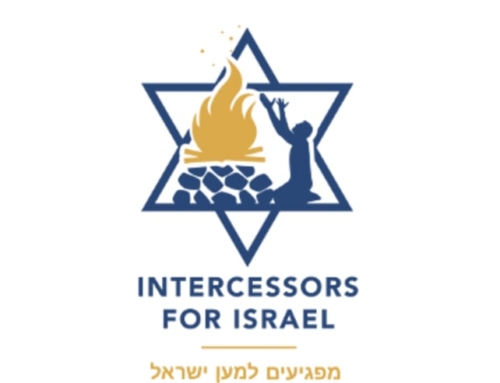
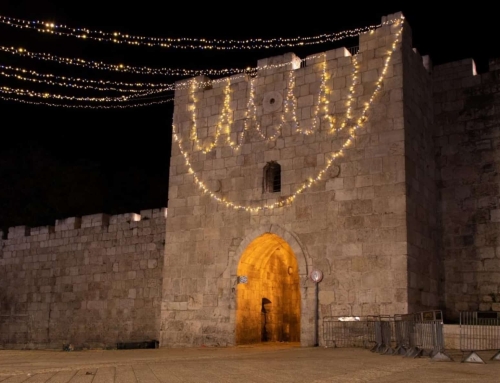
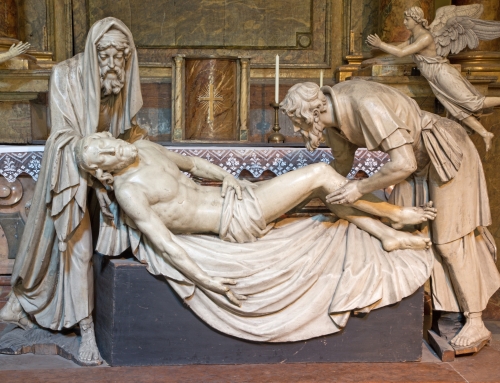
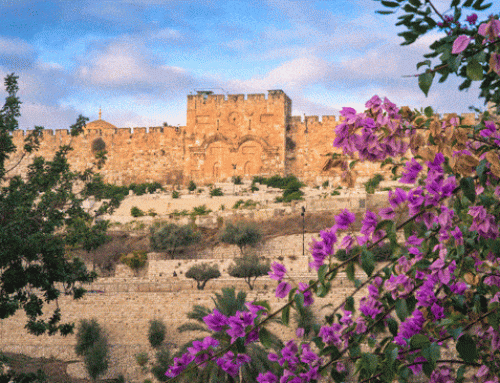
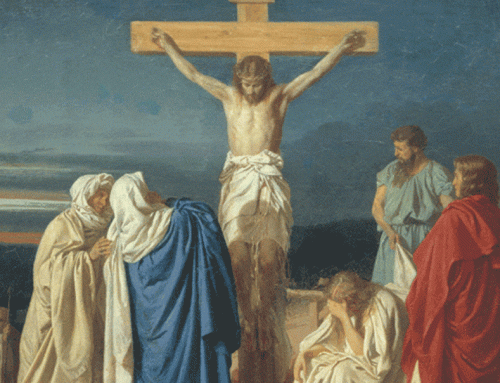
Leave A Comment